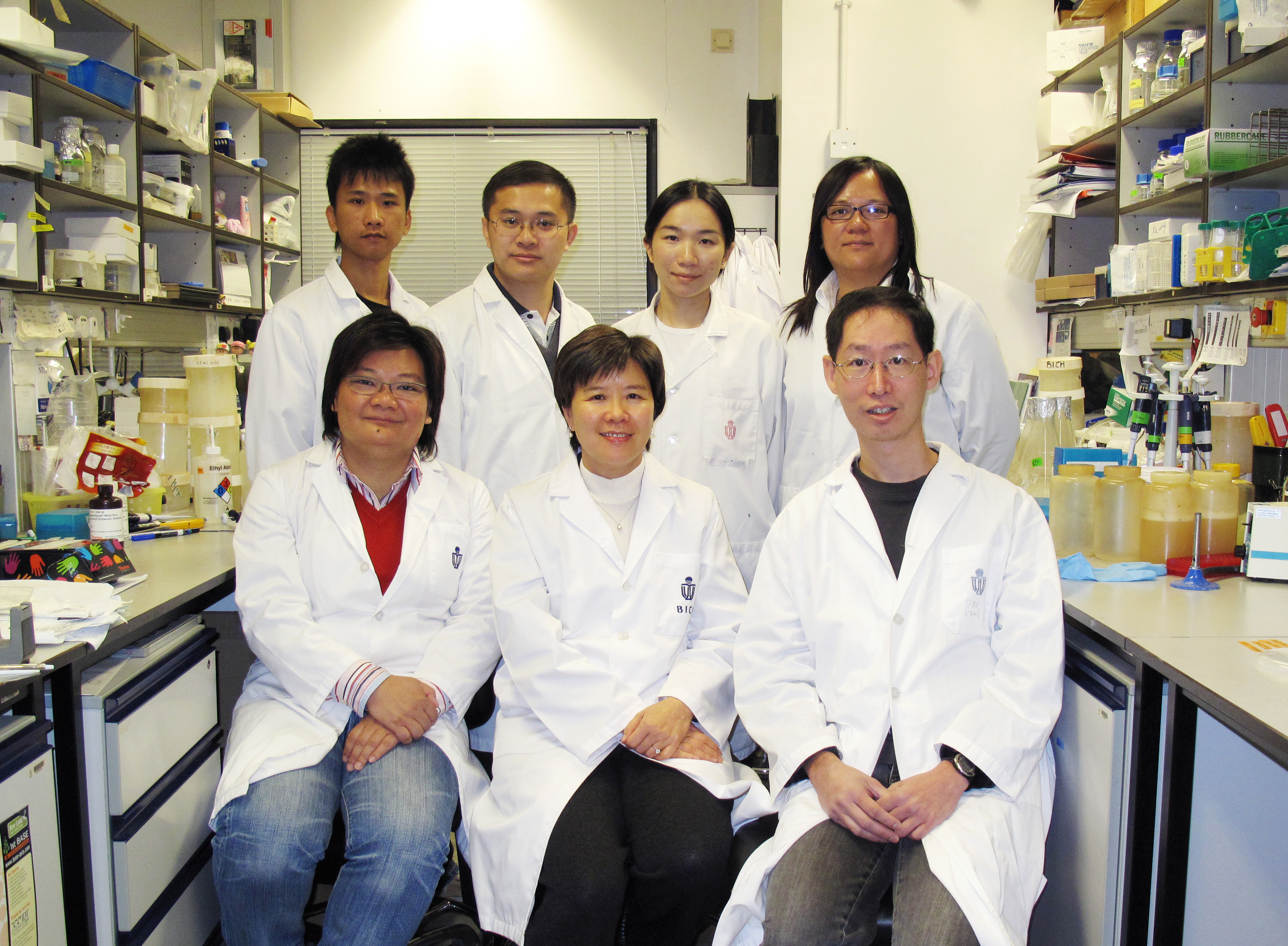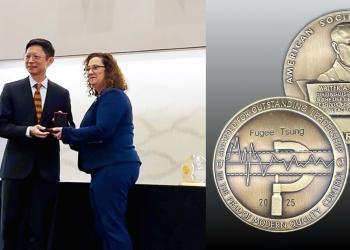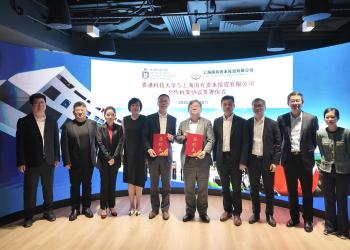Prof Nancy Ip at HKUST unravels signaling mechanisms in the brain - Breakthrough research published in prestigious molecular neuroscience journals
The Hong Kong University of Science and Technology (HKUST) is pleased to announce that it has achieved yet another milestone in molecular neuroscience research. Prof Nancy Ip, Chair Professor of the Division of Life Science and Director of the State Key Laboratory of Molecular Neuroscience at HKUST, and her research team have made breakthrough discoveries in unraveling novel signaling mechanisms in the brain that have far-reaching implications in biomedicine.
Cognitive functions, such as the ability to form memories, are largely dependent on the ‘plastic’ nature of the brain, i.e. nerve cells can adjust their functional efficacy based on experience. However, the molecular basis underpinning the ability of nerve cells to fine-tune neurotransmission in response to different levels of neural activity has remained elusive. Prof Nancy Ip and her team have successfully identified a cell surface protein EphA4 as a key regulator of brain plasticity. They found that EphA4-mediated signaling can effectively control unrestrained activity in the brain by regulating the level of neurotransmitter receptors. Since many neurodegenerative diseases are associated with impaired neurotransmission in the brain, the exciting findings by Prof Ip and her team now raises the intriguing possibility that EphA4 is a potential target for developing novel treatments to alleviate cognitive deficits in afflicted patients.
Neural plasticity is also important for maintaining proper neurotransmission between the motor neuron and muscle fiber. How the receptive sites of neurotransmitters are sculpted to allow for precise communication was not well understood. Prof Nancy Ip and her team have made the important discovery that a signaling protein downstream of EphA4 regulates the normal distribution of neurotransmitter receptors on muscle fiber and is essential for maintaining muscle strength and proper motor function. Their intriguing findings will shed new light on the treatment of neuromuscular disorders such as muscular dystrophy that involve impaired neurotransmission.
These two groundbreaking discoveries by Prof Ip and her research team have been published this year in Nature Neuroscience and Neuron, the two most prestigious journals in neuroscience.
HKUST President Tony F Chan said, “We are most excited by the breakthrough research findings of Prof Nancy Ip and her team in molecular neuroscience, which have significant implications for the treatment of neurodegenerative diseases and neuromuscular disorders. With our top notch State Key Laboratory of Molecular Neuroscience, HKUST will continue to work on first-rate research to improve the well-being of humankind.”
Prof Nancy Ip joined HKUST in 1993 and rose through the ranks to become Chair Professor in 2005. She has recently been appointed by HKUST as Dean of Science with effect from 1 February 2011. Her outstanding scientific accomplishments have won her numerous awards and honors including the Croucher Foundation Senior Research Fellowship in 1998, the National Natural Science Award in 2003, and the L’OREAL-UNESCO ‘For Women in Science’ Award in 2004. She is an Academician of the Chinese Academy of Sciences and a Fellow of the Academy of Sciences for the Developing World.
For media enquiries, please feel free to contact :
Ross Lai
Tel: 2358 6306 / 9103 2928
Email: rosslai@ust.hk
Kit Yip
Tel: 2358 6313
Email: kityip@ust.hk











